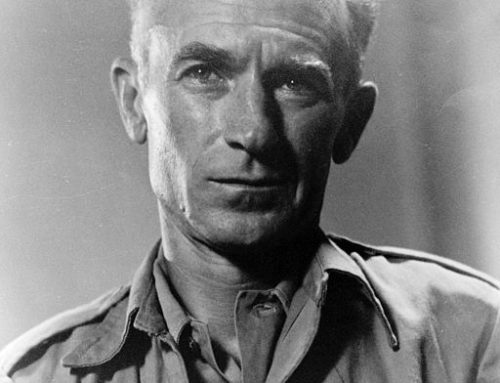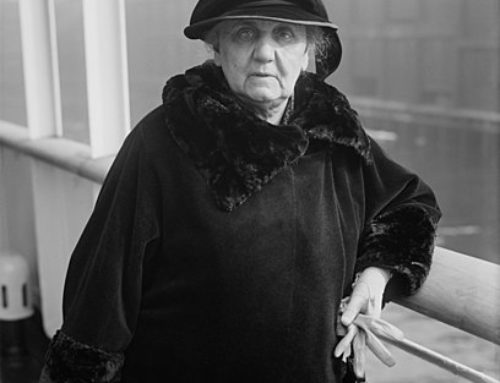Mandela has demonstrably proved that he lives by the following credo:
During my lifetime I have dedicated myself to the struggle of the African people. I have fought against white domination, and I have fought against black domination. I have cherished the ideal of a democratic and free society in which all persons live together in harmony and with equal opportunities. It is an ideal which I hope to live for and to achieve. But if needs be, it is an ideal for which I am prepared to die”
Nelson Mandela
Introduction:
Tonight, I enjoyed Charlie Rose’s interview with Richard Stengel, the editor of Time Magazine, who has repeatedly collaborated with Nelson Mandela on the iconic South African leader’s autobiography.
While listening to Stengel, I thought back to the weekly sermons at my private school, St. John’s. Once a week, we attended mandatory chapel sessions where we listened to local religious leaders. They tried to imbue moral lessons through references to bible. Unfortunately, most of these well-intentioned men spoke in platitudes rather than dealing with the concrete injustices of my hometown Houston, Texas, a repository of strict segregation ordinances. Our white community leaders struggled hard to slow down the desegregation rulings by the Supreme Court in Brown v. Board of Education (1954). They embraced the right of states to give secondary status to blacks. As a teenager I found it difficult to dismiss out of hand the white supremacist philosophy articulated by our community’s leaders. They appeared to be men of rectitude and worthy disciples of Robert E. Lee, the revered leader of the Confederacy.
Even my more liberal school mates articulated only support for a small number of blacks to have the right to participate among the white majority. Moreover, they argued that blacks’ rights were strictly limited to government not private actions. It was inconceivable that voluntary organizations—churches, movie theatres, restaurants, and housing—to allow Afro-Americans (in our era the politically correct terminology was Blacks).
However, on one occasion sometime in the late 1950’s we heard a totally revolutionary sermon by an Anglican minister from South Africa. He forcefully argued that someday in South Africa blacks would gain majority rule. Moreover, he argued that Jesus Christ would have forfeited his life in behalf of Blacks. All of my classmates, including me, were stunned. We were at best trying to rationalize letting a few blacks in our midst. This minister appeared to be a radical. He urged that the Christian ideal was for the majority (black) rule in South Africa to be enacted in order to fulfill Biblical injunctions. The minister went on to say that whether it was within a year or a millennium he forecast the passing of the old white guard. This change in rule represented the true meaning of justice. The thought of blacks ruling whites was inconceivable—as revolutionary as the proletarian takeover of autocratic Russia.
Although I spent 8 years at St. John’s, I cannot in detail recall any other sermons with the exception of this unique individual. To put the time framework of his revolutionary ideas in perspective, Nelson Mandela had not even started his 27-year prison sentence. The speech was delivered about 1958 and Mandela prison stay began in 1962. Most of Africa and the Caribbean were sill ruled by white colonial powers. In retrospect, the South African minister was comparable to the Old Testament prophets who castigated the Hebrews and their leaders for sins. These prophets spoke honestly fully recognizing that they were risking their lives. For my Christian school mates, Jesus Christ imbued the moral rectitude of the Hebrew prophets and died for his beliefs.
The minister’s message was the revolutionary concept “the liberation struggle was not so much about liberating blacks from bondage, it was about liberating white people from fear.” The last vestiges of segregations were their exhortation that Blacks would exact revenge on whites for our abusive treatment. Heretofore, we had believed that raising blacks was a zero-sum game—their gain was our pain.
After the sermon we sat around discussing this remarkable sermon. We asked ourselves was it the natural order that democracy really meant rule by the people when these future leaders came from the bottom of our social ladder? We never fully decided the merits of the sermon. In all likelihood, most of us forgot this sermon in due course and went about the normal activities of teenagers.
Main Topic
Since the end of World War II hundreds of countries have gained their independence from colonial rule. Most of these new states were conceived out of the blood of martyrs who against great odds defied their European masters. For example, Nehru, the first Prime Minister of India, served 14 years of prison. Other initial statesman like Nehru also served penal services. The self determination of Algeria cost millions of lives and bankrupted their colonial ruler France. Unfortunately, many of the leaders of new states have failed to live up to their promises of uplifting their natives’ lives. They have become dictators. Mandela chose a completely different route. He even resigned as President of South Africa after two terms. (Following George Washington’s tradition)
While many new nations shed blood to gain freedom, South Africa remains the poster child of the new era. Black leaders such as Mandela died or served long prison sentences to defeat the white apartheid regime. Nevertheless, despite serving 27 years Mandela developed a sense of dignity, tolerance, and even empathy for his white enslavers. His story is indeed a remarkable one. While not literally true, he metaphorically left prison to become the first majority elected president of South Africa. Following his release from prison on 11 February 1990, Mandela supported reconciliation and negotiation. Mandela helped lead the transition towards multi-racial democracy in South Africa.
Stengel spent almost three years helping Mandela write his autobiography Long Road to Freedom. Stengel has just finished another book “Mandela’s Way: Fifteen Lessons on Life, Love, and Courage”
“Mandela’s Way: Fifteen Lessons on Life, Love, and Courage” draws on stories from Stengel’s almost three years of shadowing and interviewing the revolutionary political prisoner who became the first democratically elected president of South Africa in 1994.
The following are just some of the 15 lessons:
Lesson No. 1: Courage is not the absence of fear
Behind his famous smile, Stengel writes, Mandela buried a lot of hurt. The best years of his life were spent behind bars. His family life was sacrificed in the struggle for justice. But he created the appearance of someone who had forgiven and forgotten in an effort to make the image a reality.
Lesson 4: “Mandela knew that the surest way to defuse an argument is to listen patiently to the opposing point of view. Lead from the back.”
Lesson 7: Mandela would say that cruel people were better men than how they behaved. He said this even when talking about the cruelest people. He wanted to see the good in others.
Lesson 8: Know your enemy. Stengel explains how Mandela won over a hostile prison commander with talk of rugby, practically a religion to whites yet hated by black South Africans who saw it as a symbol of Afrikaner brutality. Later, when he was president, Mandela donned the national team’s jersey and attended a game, causing the crowd to chant his name.
Critics of Stengel say that the author glosses over more difficult parts of Mandela’s biography, writing at one point: “He has made many, many hard decisions in his life — decisions that may have been wrong or unfair, decisions that have hurt and wounded people, even cost them their lives.”
Mandela’s Anti-apartheid activities
(Mandela was imprisoned from 1962-1989)
Mandela initially tried through peaceful methods to dismember the apartheid (segregationist policy) of the Afrikaner-dominated National Party. These policies were enacted in 1948.
In 1961 Mandela became leader of the armed wing of resistance effort against apartheid. (African National Congress Party) Mandela described his move to armed struggle as a last resort. He justified his action because of years of increasing repression and violence imposed by the government. He had become convinced that many years of non-violent protest against apartheid had not and could not achieve any progress.
American CIA supported Apartheid
According to the New York Times, on 5 August 1962 Mandela was arrested. The arrest was made possible because the U.S. Central Intelligence Agency (CIA) tipped off the South African security police as to Mandela’s whereabouts and disguise.
In 1964 Mandela was found guilty of treason. Mandela in his defense said that only through acts of sabotage could his party resist apartheid. The alternative was unconditional surrender. Instead of being executed like some of his colleagues, he was sentenced to life in prison. He served 27 years.
Prisoners were segregated by race, with black prisoners receiving the fewest rations. Political prisoners were kept separate from ordinary criminals and received fewer privileges. Mandela describes how, as a D-group prisoner (the lowest classification) he was allowed one visitor and one letter every six months. Letters, when they came, were often delayed for long periods and made unreadable by the prison censors.
Throughout Mandela’s imprisonment, local and international pressure mounted on the South African government to release him, under the resounding slogan Free Nelson Mandela![62] In 1989, South Africa reached a crossroads when Botha suffered a stroke and was replaced as president by Frederik Willem de Klerk. De Klerk announced Mandela’s release in February 1990.
Conclusion
Mandela has received more than 250 awards over four decades, most notably the 1993 Nobel Peace Prize. In November 2009, the United Nations General Assembly announced that Mandela’s birthday, 18 July, is to be known as ‘Mandela Day’ to mark his contribution to world freedom.



